
Our Pet Emergency Centres will open 24/7 on Anzac Day should you need us.
If you need a veterinary help, then please contact one of our 24 hour Pet Emergency Centres in Melbourne:
Essendon Fields: (03) 9379 0700
www.animalemergency.com.au
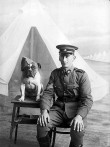
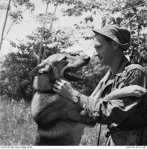
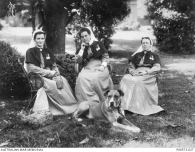
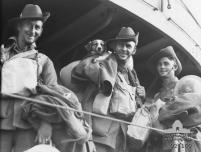

Our Pet Emergency Centres will open 24/7 on Anzac Day should you need us.
If you need a veterinary help, then please contact one of our 24 hour Pet Emergency Centres in Melbourne:
Essendon Fields: (03) 9379 0700




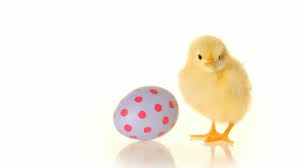
VET OPEN GOOD FRIDAY, EASTER SUNDAY & EASTER MONDAY
Animal Accident & Emergency
will be OPEN 24/7 during the Easter Holiday period.
Our Pet Emergency Centres are always open as we never close even on public holidays.
If you need a vet on Good Friday, Easter Sunday or Easter Monday
then please contact one of our 24 hour Pet Emergency Centres in Melbourne:
Essendon Fields: (03) 9379 0700


******* EXTREME HEAT FORECAST ******
Melbourne’s forecast tomorrow is for extreme heat. Extreme heat causes significant stress for all animals.
To reduce the impacts of high temperatures on your pet, please ensure:
* the provision of a plentiful supply of clean cool water
* shade is essential if your pet is outside
* walk your dog early to avoid the hot mid day sun
* don’t over exercise
* never leave your pet in a hot car
* provide ice blocks and/or wet towels
If you are concerned your pet is be suffering from the heat get veterinary help immediately or one of our 24 hour Pet Emergency Centres in Melbourne:
Animal Accident & Emergency:
Essendon Fields: (03) 9379 0700
Point Cook: (03) 8368 7400

***Valentines Day Chocolate Toxicity Warning***
Valentine’s Day is a time to spoil our beloveds, woo our secret lovers, and remember to call our mothers which means that Melbourne households will be filling up with chocolate. We are asking all pet owners to be cautious of chocolate around your pets especially this weekend.
Older pets, or animals with pre-existing heart conditions, are more susceptible to the effects of chocolate poisoning and at higher risk of sudden death due to cardiac arrest.
The common clinical signs of chocolate poisoning are:
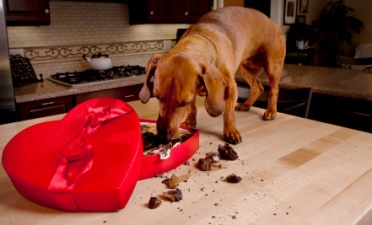
Why Chocolate is dangerous to pets:
Cooking/baking chocolate and dark chocolate pose the biggest danger, as they contain the largest concentration of theobromine. A 10kg dog would only have to eat 50 grams of milk chocolate to show clinical signs of chocolate toxicity or as little as 30 grams of dark chocolate. Whereas a mere 15 grams of baking chocolate (containing 70% cocoa) could lead to chocolate toxicity. Keep in mind that if the chocolate contains other harmful ingredients such as raisins/sultanas, alcohol or macadamia nuts then it may cause further complications.
It contains the alkaloid theobromine, which has similar effects as caffeine and is poisonous in large amounts. The toxicity level of the chocolate depends on the type and amount that is consumed, as well as the size of the dog. Toxic doses are generally considered to be 100mg of theobromine per kilogram of body weight, with fatal doses often occurring at over 200mg per kilogram.
Ingestion of chocolate in dogs does often lead to significant illness and so should be taken seriously by pet owners and treated as an animal emergency. As with all things, it’s better to be safe than sorry, so if you believe your dog has ingested any amount of chocolate you should immediately consult an emergency veterinarian and bring it in for examination at a 24 hour animal emergency centre.
Essendon Fields: (03) 9379 0700
Point Cook: (03) 8368 7400

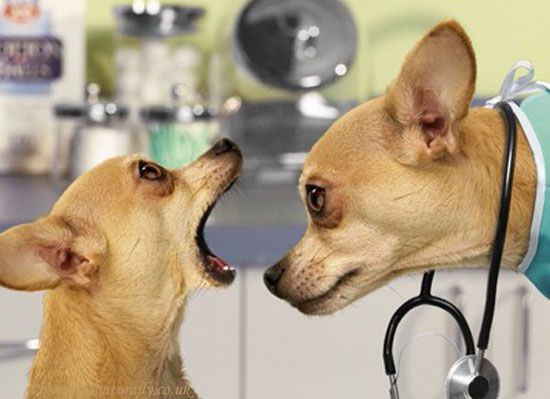
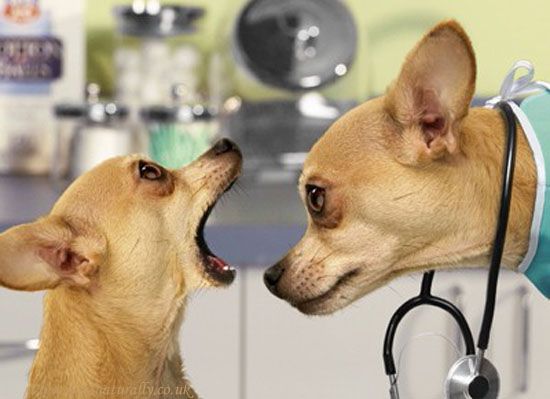
24 Hour Vet Care Melbourne
Animal Accident and Emergency (AAE) is a purpose-built animal emergency centre servicing Melbourne. It provides 24-hour animal emergency services. There are two great locations – Essendon and Point Cook. The centres are located to provide direct and easy freeway access. Time is precious in any emergency.
Our Melbourne Vet Emergency Centres provide dedicated emergency care 24/7. We are not just an after hours vet clinic. Our whole focus is emergency and critical care.
If you have a Veterinarian emergency please contact one of our 24 Hour Pet Emergency Centres in Melbourne:
Essendon Fields (03) 9379 0700
Point Cook (03) 8368 7400

**Snake Warning As Weather Warms Up in Melbourne**
With the weather warming up, Snakes are now emerging from hibernation and becoming active.
If you are out walking your pets you should keep an eye on your dog and avoid walking in long grass.
The common signs of Snake bite include pets who suddenly start vomiting, having trouble walking, urinating blood, collapsing.
If you think that your pet may have been bitten, then you need to take them to your local vet or to one of our
24 hour Pet Emergency Centres as they need to be seen as soon as possible!!
Essendon Fields: (03) 9379 0700
Point Cook: (03) 8368 7400
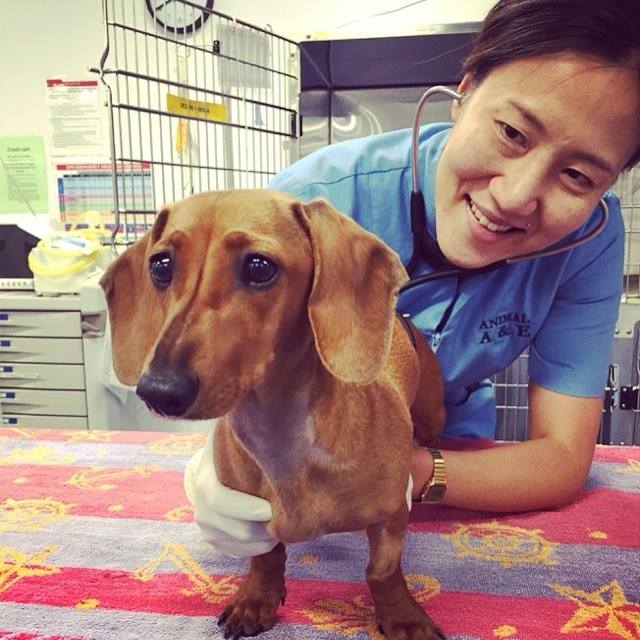
This is the adorable Twiggy, a 7 month old Dachshund puppy who has received emergency veterinary care by Dr Jina Song for Chinaberry toxicity.
The Chinaberry tree is also know as White Cedar tree or “Melia Azedarach” and is highly toxic.
Twiggy presented at our Point Cook 24hr Pet Emergency Centre suffering an acute onset of vomiting.
Twiggy was most fortunate as her carers saw her eating the berries and rushed her to our centre. Her treatment was successful although she is continuing treatment due to expected complications from stomach insults from her ordeal.
The entire tree is toxic (bark, leaves and flowers) with higher toxin amounts in the berries.
Once eaten, your pet will quickly show varying signs:
– vomiting,
– tremors,
– seizures,
– diarrhoea,
– weakness,
– death (which can occur within 24 hours)
The fruit is highly toxic to animals and people, most likely causing death from kidney, liver failure and central nervous system problems.
If your pet ingests these berries please contact your veterinarian or one of our 24hr Pet Emergency Centres immediately.
Essendon Fields: (03) 9379 0700
Point Cook: (03) 8368 7400

In Australia, Halloween is getting bigger and bigger every year. With the cultural impact growing it’s a good idea to consider some safety issues for your pet.
**Trick-or-treat candies are not for pets
Chocolate in all forms, especially dark or baking chocolate can be very dangerous for dogs and cats. Even non-chocolate candy is dangerous, as it may contain, xylitol, an artificial sweetener that can cause a sudden drop in blood sugar and seizures.
**Take caution with your pet’s costume
Don’t dress your pet in a costume unless you know they’ll love it. Make sure it fits properly and is comfortable, doesn’t have any pieces that can easily be chewed off, and doesn’t interfere with your pet’s sight, hearing, breathing, opening its mouth, or moving.
**Don’t leave pets out in the yard on Halloween.
Dog and cat owners should consider keeping their pets in a secure location during the celebrations. Too many strangers can be scary and stressful for pets. Loud excited kids dressed in unusual costumes can freak out pets. Dogs are especially territorial and may become anxious.
**Keep away from decorations
Keep lit candles out of reach of pets. Carved pumpkins or candles are very easily knocked over causing a fire hazard or burns.
**Make sure your pet has ID
There has been an increasing number of pets going missing on Halloween, ensure your pet has an identifying tag, engraved with your phone number. Having the proper identification will increase the chances that they will be returned.
If you have any pet safety concerns please call your local vet or one of 24-hour Pet Emergency Centres:
Essendon Fields: (03) 9379 0700
Point Cook: (03) 8368 7400
Day Light Savings starts tomorrow Melbourne!
Please push your clock an hour forward.
ANIMAL ACCIDENT & EMERGENCY
We are OPEN 24 hours 7 days a week if your pet needs veterinary help.
Essendon Fields (03) 9379 0700
Point Cook (03) 8368 7400
****REMINDER****
Day Light Savings will start this Sunday for Melbourne.
Please push your clock an hour forward.
Animal Accident & Emergency is OPEN 24 hours 7 days a week if your pet needs veterinary help.
Essendon Fields (03) 9379 0700
Point Cook (03) 8368 7400
Georgy is a gorgeous Burnese Mountain Dog who presented to Animal Accident and Emergency Point Cook last week for severe abdominal pain, abdominal distension (bloated belly) and dry retching (attempting to vomit without producing any vomit).
This presentation and breed are typical of a disease commonly known as BLOAT. The technical name for bloat is “gastric dilation and volvulus” or “GDV” for short.
In cases of GDV the stomach has become distended and has filled with gas and then twisted over on itself. This is a life threatening condition as all the blood vessels that supply the stomach get kinked off like a bent hose pipe and this stops the blood flow to the stomach wall. The stomach wall begins to die as a result of the lack of blood supply. The stomach then inflates further as gas cannot escape out of a twisted stomach. The inflating stomach blocks off blood that is returning to the heart via the large vessels in the abdomen. This causes shock. Another complication of the overly inflated stomach is that it puts pressure on the diaphragm (the muscle that makes you breath) thus making it very difficult for these poor doggies to breath!
Please see this link for an animation of what happens in GDV:
In summary, the main things that happen in a bloat case are:
So now that we all know about GDV and what happens, what can we do to correct it and save your beloved dog?
The first thing to do is confirm the vets suspicion of GDV with a x-ray of the patient’s belly. This is exactly what we did for Georgy. If the vet suspects that your dog has GDV, you may be asked if we can take an x-ray immediately to check if that is indeed what is happening.
Unfortunately, once the twisted stomach has been confirmed, the only way to fix what is happening is surgery. Before we get into what is done surgically to correct this condition we need to stabilise the dog first. Stabilisation involves deflating the stomach by either passing a tube down their throat or using a needle to let some gas out. Given that these patients are in shock fluids will need to be started immediately in order to help their heart and circulation. This condition is also painful and pain relief will be provided in this phase.
The next step is surgery. Surgery involves anaesthetising the patient and an incision (cut) into the abdomen (belly). The stomach is untwisted and inspected carefully. Sometimes the stomach will be dead in places and these places will have to be removed because dead tissue cannot be left behind. The spleen (a blood storage organ) is closely attached to the stomach and sometimes this may have twisted with the stomach and may need to be removed as well- this may sounds like a big deal but dogs do just fine without their spleens. Once the stomach and spleen are dealt with, the stomach is then stitched to the abdominal wall to prevent it twisting over on itself again – this is called a GASTROPEXY and is a VERY IMPORTANT part of the surgery as this condition will recur if this is not done!
The rest of the abdomen is inspected and then closed.
RECOVERY
Recovery time for this surgery depends on a lot of different things. Minimum time in hospital after surgery is 24 hours but some patients may require a few days. The longer the stomach is twisted for before surgery is performed, the more complications are encountered and the longer the recovery period.
WHAT TO LOOK OUT FOR?
WHAT TO DO IF YOU THINK YOUR PET HAS BLOAT?
Contact a vet immediately. As mentioned before, time is of the essence in both saving your dog and in minimising complications. AAE Essendon and Point Cook are open 24 hours a day 365 days of the year.
HOW CAN YOU PREVENT GDV?
DISPELLING THE MYTHS
We are happy to say that the lovely Georgy made a full recovery from her GDV and subsequent surgery with very few complications.
Animal Accident & Emergency has two 24 Hour Pet Emergency Centres in Melbourne.
Our Pet Emergency departments are OPEN 365 days, providing 24 Hour Critical Care.
Essendon Fields: (03) 9379 0700
Point Cook: (03) 8368 7400
Look at those gorgeous amber eyes!
Vixen is a 15 year old long hair domestic cat who has just checked in at Animal Accident & Emergency for I131 Radioactive Iodine Therapy.
I131 Radioactive Iodine Therapy is for the treatment of hyperthyroidism in cats.
Vixen has been referred to us by Fitzroy Veterinary Hospital and will be under the care of Dr Linda Abraham while under going treatment.
I131 Radioactive Iodine Therapy
http://www.animalemergency.com.au/i131-cat-hyperthyroid-tre…
Southpaws is excited to announce that we are now seeing cases and performing surgery at Animal Accident and Emergency in Point Cook.
Dr. Charles Kuntz is consulting on Friday mornings and operating on Friday afternoons. AAE Point Cook is equipped with a new pencil cone CT scanner which provides excellent image quality with minimal radiation exposure.
All types of surgical procedures including:
– oncologic surgery
– neurosurgery
– orthopaedic surgery (including arthroscopy) and
– soft tissue surgery
Please call Southpaws on (03) 9553 1775 to book appointments.
Email info@southpaws.com.au if you have questions.
As always Southpaws surgical consultations at Point Cook are free-of-charge.
We do not recommend rabbits and guinea pigs together for the following reasons:
Guinea pigs rarely cohabit well with other species. If you have indoor dogs and cats you need to a secure enclosure.
The Melbourne Rabbit Clinic is the first and only hospital in Australia to treat rabbits and guinea pigs exclusively.
Melbourne Rabbit Clinic have an absolute passion for rabbits and guinea pigs offering high quality veterinary care especially tailored for Rabbits and Guinea Pigs.
Melbourne Rabbit Clinic is consulting at Animal Accident & Emergency our 24 hour Vet Emergency Centres – Essendon Fields & Point Cook
To book an appointment please ring the Melbourne Rabbit Clinic directly on (03) 9758 9879.
For more information please visit our website: www.animalemergency.com.au
FLUTD is a major emergency as it can cause death. The urethra is tube that connects the bladder and penis. If this becomes blocked, you cannot urinate. In some cases the bladder will burst.
If you cannot urinate, you body starts to build up toxins from the kidneys. These toxins can cause death by affecting the heart and other organs. FLUTD can be a common problem in male cats.
If you notice that your cat is unwell, licking his genital area more than normal and straining to go to the toilet, then they should be checked. Other common signs can include frequently using the litter tray and only urinating a couple of drops. Sometimes you may see blood in the urine.
There are many causes of FLUTD. Sometimes a special diet is required to reduce crystals forming in the urine.
Animal Accident & Emergency have two 24 hour Animal Hospitals in Melbourne, which are ideally located in Essendon and Point Cook and both with easy freeway access and amble parking.
Our emergency vet clinics operate 24 hours a day, 365 days a year (including public holidays), and offer all the latest equipment and state of the art technology, as well as a 24 hour intensive care unit. Our dedicated team of emergency vets and nurses provide the highest standards of emergency vet care, critical care medicine and surgery, and are experienced in treating all emergencies from right across Melbourne, Geelong and Ballarat. So when you bring your pet to Animal Accident & Emergency you can rest assured that your pet will receive the best and most advanced vet care available.
If you believe your cat is FLUTD or for any other veterinarian emergency, please contact one of our 24-hour animal emergency centres:
Essendon Fields (03) 9379 0700
Point Cook (03) 8368 7400
Full Time & Casual Emergency Veterinary Nursing Positions
Animal Accident & Emergency would like to announce that we now have a full time nursing position and casual positions available. We are looking for people who are excited by emergency nursing and are looking for a challenge. These positions would ideally suit an experienced nurse.
Animal Accident & Emergency operates on a 24 hour basis and employment is shift based. Shifts are scheduled to include night, day and weekend work. This would be a great opportunity for those looking at completing a Diploma in Veterinary Nursing. Successful applicants will be required to work at both our locations, Point Cook and Essendon Fields.
Applications will close on Friday 5 June 2014. The positions available are for immediate start. Please send a résumé including a referee list to jobs@animalemergency.com.au . Attention your application to HealthCare Team Manager and advise which position you are applying for.
Please note that this is not a training a position. Applicants must have as a minimum a Cert IV in Veterinary Nursing. All applicants will be contacted after the application close date.
For more information please visit our website: www.animalemergency.com.au
Along with being able to deal with any animal emergency, Animal Accident & Emergency also houses a critical care unit. This is complementary to our 24 hour vet – Melbourne pets requiring intensive care have access to experienced care around the clock.
Critically ill patients have access to central venous pressure monitoring, positive pressure ventilation or respirators, enteral feeding and parenteral feeding catheters and more.
Critically ill animals will likely need the assistance of a team of doctors.
Essendon Fields (03) 9379 0700
OPENING HOURS FOR LABOUR DAY WEEKEND
Animal Accident & Emergency will be OPEN 24/7 over the long Labour Day weekend.
We have two Pet Emergency Centres in Melbourne which will be OPEN 24 hours on Labour Day.
Essendon Fields (03) 9379 0700 Point Cook (03) 8368 7400
Happy Labour Day!
Oliver is a 7 year old Chihuahua has CHF (Congestive Heart Failure)
Yesterday, Oliver’s owner noticed an increased respiratory effort and brought him into our Essendon Fields Pet Emergency Centre.
Oliver was placed in an oxygen chamber and admitted for supportive care.
The leading cause of heart failure in dogs is chronic valvular disease, next is dilated cardiomyopathy and then congenital heart disease and heartworms.
What is Congestive Heart Failure?
CHF occurs when either the heart muscle or the heart values are diseased and the heart is not able pump blood efficiently. This causes a build up of fluid in the lungs and also sometimes the abdomen. Congestion the lungs means not enough oxygen is available to the body.
Symptoms:
Unchecked heart problems can make things harder on your dog and even shorten their life span. Receiving the right treatment and care your dog can go on to live a long life.
Sadly, Oliver’s heart disease will continue to progress and he is on medication for the rest of his life. The medication will give Oliver a happy and comfortable life for as long as possible.
Oliver has gone today with his caring owner and the staff at AAE wish him all the best.
It’s time for a shout out to one of our patients!
Kitty is a very cuddly cat who has been under the care of Dr Linda Abraham for the last week. Kitty was referred from Altona Veterinary Clinic for treatment of an over active thyroid.
Kitty is one of the many cats that Dr Linda has treated with radioactive Iodine (i131) for Feline Hyperthyroidism. For most cats that are treated, their over active thyroid returns to normal and they loose the need for daily medication. Removing the need for daily medication greatly improves the health and well being for the pet and owner.
Animal Accident & Emergency Point Cook, is one of limited facilities in Australia that are licenced to perform treatment for cats. We perform the service weekly and are happy to discuss options for therapy with you.
Kitty will be discharged today.
For more information on I131 cat treatment click on the following link: I131 Radioactive Iodine Therapy
Animal Accident & Emergency is proud to announce the introduction of I131 Radioactive Iodine Therapy for the treatment of hyperthyroidism in cats.
Our Radioactive Therapy Unit has been designed to ensure safety of our team and patients within our facilities. Our therapy unit is housed within our current facility and allows a comfortable stay in a quiet, temperature controlled environment for patients undergoing therapy.
The AAE I131 Radioactive Iodine Therapy Unit will be run by Dr Linda Abraham who has considerable experience in treating hyperthyroid cats with radio-iodine.
Bookings can be made by contacting our Medicine service at:
Animal Accident & Emergency Point Cook. Ph: 03 8368 7400.
Histories and any management questions are to be emailed to medicine@animalemergency.com.au
For more information on the process please click on the link: I131 Cat Hyperthyroid Treatment Process
Animal Accident & Emergency have a created a page for local lost pets within Melbourne.
What to do when you loose your pet:
For a list of local Animal shelters and Council number click on the attached link:
http://www.animalemergency.com.au/lost-pets.html
If you think your pet is suffering from heat stroke, please call Animal Accident & Emergency or contact your local vet without delay.
Essendon Fields: (03) 9379 0700
Point Cook: (03) 8368 7400
OPENING HOURS FOR AUSTRALIA DAY WEEKEND
Animal Accident & Emergency will be OPEN 24/7 over the long Australia Day weekend.
We have two Pet Emergency Centres in Melbourne which will be OPEN 24 hours on Australia Day.
Essendon Fields (03) 9379 0700
Point Cook (03) 8368 7400
Happy Australia Day!
Alfred’s owners had attempted to manually fix the problem but with no success.
When Alfred arrived at our Essendon Pet Emergency Centre his prolapsed penis was very swollen/inflamed that our emergency vets needed to place Alfred under a general anaesthetic.
Causes of this condition can be from excess licking, sexual excitement or foreign bodies getting up under the skin(hair) and trauma.
If the swelling does not resolve within 30 minutes then immediate veterinary treatment is required due to tissue damage and urethral obstruction. In some cases the tissue of the penis dies off due to lack of blood supply and the dog requires a partial penis amputation.
In Alfred’s case our emergency vets had been able to replace his penis back into it’s normal position. He is a very sweet 5 month old Basset Hound puppy and the staff at AAE wish Alfred a speedy recovery.
Along with being able to deal with any animal emergency 24/7, Animal Accident & Emergency also houses a critical care unit at our Animal Hospitals. This is complementary to our Melbourne pets requiring intensive care, they have access to experienced care around the clock.
Critically ill patients have access to central venous pressure monitoring, positive pressure ventilation or respirators, enteral feeding and parenteral feeding catheters and more.
Critically ill animals will likely need the assistance of a team of emergency specialist vets.
http://www.animalemergency.com.au/contact-us-1.html
Animal Accident & Emergency is seeking applicants for a full time emergency and critical care veterinarian. Our hospitals are purpose-built 24-hour emergency, critical care and referral facilities, with the latest up-to-date equipment. We have everything you will need to provide the best standard of care including multi-parameter patient monitors, in-house laboratory, ultrasound, endoscopy, digital radiography, mechanical ventilation, CT and fluoroscopy. The position will involve shift work at both our Essendon and Point Cook centres and would suit applicants looking to further their career within emergency and critical care.
The ideal candidate will possess the following:
Our successful candidate will have access to the following:
Employment is shift based, with rotations involving day, night, weekend and public holiday shifts.
The standard working week is 37.5 hrs.If you are interested in working with a great team with plenty of support and challenging and rewarding cases, please send your application to jobs@animalemergency.com.au
Animal Accident and Emergency (AAE) is a purpose-built animal emergency centre servicing Melbourne. It provides 24hr animal emergency services. There are two great locations – Essendon and Point Cook.
Our Melbourne Vet Emergency Centres provide dedicated emergency care 24/7. We are not just an after hours vet clinic. Our whole focus is emergency and critical care.
If you require treatment for an animal emergency, Melbourne’s AAE offers:
The staff at #Animal #Accident & #Emergency wish Chloe a speedy recovery.
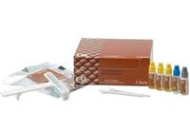
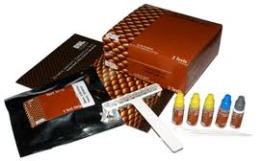 How We Diagnose Snake Bite in Pets
How We Diagnose Snake Bite in Pets
During summer we treat numerous pets with snake bite. It is a downside to living in Australia. In the Melbourne region, the most common snakes are Tiger snakes. Brown snake bites also occur but are less frequent. Tigers and Browns are very deadly. Bites from these snakes may kill pets within minutes. They have a mixture of toxins depending on the snake. Toxins may include: Neuro Toxin (affects nervous system and causes paralysis); Myotoxin (destroys muscles within the body); Coagulant Toxin (causes massive internal bleeding); Renal Toxin (affects kidney function).
To treat snake bite we use specific anti-venom therapy. While some pets may survive without anti-venom, the length of recovery and complications including death is much greater for these pets. Often these pets have had a minimal bite if they do survive.
Sometimes it is very easy to identify a snake bite – the pet was seen with a snake, starts vomiting and collapses. Other times we need to run specific tests to identify a snake envenomation.
Within our 24Hr Pet Emergency Centres we keep a range of tests to identify snake bites. We have specialised laboratory machines so that we can identify a snake bite quickly. Sometimes there is not one test that we use, but a range of tests.
One of the most important tests is the Snake Venom Detection Kit (SVDK). The SVDK was developed by CSL and is specific for all Australian venomous snakes. The test looks for free venom in urine (or blood). If you have been bitten, then within a short period of time, there will be free venom filtered into your urine by your kidneys. The SVDK identifies this venom and tells us what type of snake has bitten the pet. It means that we know that the pet has been bitten and what type of anti-venom should be used.
Some pets can play with a snake and not be envenomated. The SVDK can be used to identify such pets and if the test is negative, we can avoid giving anti-venom which is very expensive.
We also use the SVDK to guide therapy. If after receiving anti-venom, the test is still positive, it indicates that further anti-venom will benefit the pet. If it is negative, then we know that giving further expensive anti-venom is not required.
We stock numerous vials of anti-venom as well as SVDK at both our Melbourne Animal Hospitals. Vets now Open with immediate treatment for Snake Bite. If you need further advice, please contact any of our 24Hr Pet Emergency Centres:
Essendon 9379 0700
Point Cook 8368 7400
Rufus is a 9 month old Choc Point Burmese cat who presented to Animal Accident & Emergency as a referral from his regular vet for ongoing care after being diagnosed with a tail pull injury.
What is a Tail Pull Injury:
It is a common injury caused when a car runs over the cat’s tail pulling apart the sacral-lumbar or coccygeal vertebrae and stretching the nerves that go to the bladder, rectum, and tail.
Signs: Tail hangs loosely – paralysed tail, urinary and/or faecal incontinence to partial loss of sciatic nerve function.
Treatment: Cats will need to be seen by a vet and hospitalised so the bladder can be manually emptied and receive treatment to attempt to heal the nerves controlling the urination and defecation. The tail may need to be amputated.
All spinal cord injuries require immediate veterinary attention. Protect the cat’s spine and use a blanket or towel to lift the cat onto a flat surface like a board before transporting to the vet.
Rufus is currently receiving critical care at our Essendon Pet Emergency Centre, the staff at AAE wish Rufus a speedy recovery.
Pictured above: Rufus enjoying a neck rub from Dr Nicole Trigg after his morning examination.
1. Locking a dog in a car, even if the car windows are open it is too dangerous.
2. Exercising with a dog when there is excessive heat and humidity
3. Leaving your outdoor dog in the sweltering heat without adequate water or shelter/shade.
Some signs of heat stroke:
-Constant panting
-Dry gums that feel sticky to the touch
-Dark red gums
-Vomiting
-Wobbly
-Seizures
-Dark coloured urine
-Diarrhoea
-Difficulty breathing
-Collapse
If your pet is suffering from a heat stroke, then we need to see your pet as soon as possible.
• Cool them down with fans and water
• Phone us
• Drive to our emergency centres as safe as possible.
Essendon Fields: (03) 9379 0700
Point Cook: (03) 8368 7400
It’s been a very busy weekend at Animal Accident & Emergency.
This is Boss, 1 year old Husky who received critical care at our #24hour #Pet #Emergency #Centre for a fractured leg. Boss had jumped off the fence.
With the weather warming up, Snakes are now emerging from hibernation and becoming active in the late afternoon.
If you are out walking your pets you should keep an eye on your dog and avoid walking in long grass.
The common signs of Snake bite include pets who suddenly start vomiting, having trouble walking, urinating blood, collapsing.
If you think that your pet may have been bitten, then you need to take them to your local vet or to one of our 24 hour Pet Emergency Centres as they need to be seen as soon as possible!!
For more information on Snake Bites – Prevention and Treatment click on the link below:
https://animalaccidentemergency.wordpress.com/2014/03/15/snake-bites-prevention-and-treatment/
I would like to introduce Leo. Leo has just completed his treatment with Radioactive Iodine at Animal Accident & Emergency.
Leo is a lovely cat that has just completed his treatment for Hyperthyroidism. Hyperthyroidism occurs in some cats due to an over active thyroid gland. If left untreated it can lead to some serious health conditions. Treatment involves using medication or treatment with radioactive iodine.
In July, we commissioned a radioactive iodine therapy unit at our Point Cook 24Hr Pet Emergency Centre. Radioactive iodine has many advantages over medication. Medication is often required more than once per day, which is difficult in some cats. The medication is also lifelong. In treatment with radioactive iodine, we gave Leo a capsule containing radioactive iodine. Leo then spent 7 days in our therapy unit so that we could monitor his progress.
Most cats that receive the capsule are oblivious to the effects of the capsule during the week. It is non painful and successful in greater than 90% of cats treated, Dr Linda Abraham performs our radioactive iodine therapy and has years of experience in this technique. Patients are admitted on a Monday and treatment occurs on a Tuesday.
If you think that treatment with radioactive iodine might be an option for your cat, please speak to your vet about referral to Dr Abraham for treatment.
Pepper is a sweet 5 year old West Highland Terrier dog who had been seen at AAE on previous occasions for oesophageal foreign body (caused by bone ingestion).
Last Thursday night, Pepper’s owner noticed she wasn’t herself when Pepper jumped on their bed in the middle of night. Pepper was shaking so her owners brought her in to our Essendon Fields Pet Emergency Centre.
Pepper had managed to steal 3 large marrow bones from her house mate. She developed severe abdominal pain after eating the bone.
Pepper’s pain was severe enough that her pain relief medication had to be escalated requiring a combination of 3 different pain relief medications to keep her severe pain under control.
It took 4 days for Peppers abdominal pain to resolve.
Pepper has now gone home with her caring owners and is on a strict low fat diet.
Pepper was a very sweet patient and the staff at Animal Accident & Emergency wish her a speedy recovery.
*Sunday 3rd August 2014 from 9am – 12pm
*Sunday 17th August 2014 from 9am – 12pm
This course is open to the public and recommended especially …for those who work with pets – foster carers, pet sitters, rescue workers etc
The course will cover common emergencies and first aid:
– CPR – practice on a dog mannequin
– Rescue breaths
– Bleeding
– Bandaging
– Shock
– Choking
– Bites & stings
– Burns
– Eye injuries
– Ear injuries
– Nose injuries
– Broken bones
– Sprains
– Heat stress
– Seizures
– Poisoning/toxicities
To enroll or for more information please click on the link below: http://www.petemergencystore.com.au/Pet First Aid Course
Von Willebrand’s disease is a genetic bleeding disorder that is found in all breeds of dogs, but more commonly in certain breeds, such as Dobermans, Rottweilers, Scottish Terriers, German Shepherds and German Short Haired pointers. It is caused by a deficiency in a specific blood clotting factor that helps platelets to bind broken blood vessels and start to form a blood clot. Without veterinary treatment, von Willebrand’s disease can be life threatening when the pet’s body needs to deal with any form of internal or external bleeding. When this blood clotting factor deficiency is present (known as the von Willebrand factor), even a small injury can lead to excessive blood loss and potentially anaemia, as the blood is unable to clot normally.
While the specific clinical signs for von Willebrand’s disease aren’t always obvious for pet owners to spot, any sign of excessive bleeding should be treated as an animal emergency and the pet needs to be taken to a 24 hour vet clinic immediately. Also, while pets are born with this disease present in their body, they may not show any effects of the bleeding disorder until later in life when they have a surgery or injury that causes bleeding.
The most common clinical signs that may be seen are:
When veterinarians suspect that pets may have von Willebrand’s disease, the most common diagnostic test performed is the buccal mucosal bleeding time. This tests how well blood clotting platelets are working by by making a small incision in the pet’s gum and timing how long it takes for the bleeding to stop. Blood tests are also used to check how much of the von Willebrand’s factor is present in the blood.
When the disease becomes an emergency situation, 24hr emergency vets will often need to use plasma transfusions to stabilise the pet and return clotting factors to the bloodstream. Blood transfusions may also be required if there has been significant blood loss. After transfusions, animals will generally need to remain in a 24 hour pet hospital for ongoing monitoring and care, as well as potentially more transfusions.
There is unfortunately no cure for von Willebrand’s disease. However, it is still highly important to know if the disease is present in pets, especially Dobermans (as they are particularly prone to the disease), as this is crucial information if pets ever require surgery or if any sudden injuries occur. Owners of pets with von Willebrand’s disease can also help to prevent any excessive bleeding crisis’ from happening by avoiding high levels of stress and particular medications when possible, as these can worsen the effects of the disorder. While von Willebrand’s disease cannot be cured, most pets with this condition can still go on to lead long, happy and completely normal lives with the appropriate veterinary care.
Animal Accident & Emergency have two 24 hour pet emergency centres in Melbourne, which are ideally located in Essendon and Point Cook – both with easy freeway access and ample parking. Our animal hospitals are open 24 hours a day, 365 days a year (including public holidays), and offer all the latest equipment and state of the art technology, as well as a 24 hour intensive care unit. Our dedicated team of emergency vets and nurses provide the highest standards of emergency vet care, critical care medicine and surgery, and are experienced in treating every vet emergency from right across Melbourne, Geelong and Ballarat. So when you bring your pet to Animal Accident & Emergency you can rest assured that they will receive the best and most advanced vet care available.
If you believe your pet may be have von Willebrand’s disease, or for any veterinarian emergency, please phone one of our 24 hour animal emergency centres:
Essendon Fields (03) 9379 0700
Point Cook (03) 8368 7400
We’re Always Open, Always Care
Dr Yenny Indrawirawan BAnimSc, BVSc, MANZCVS (ECC)
RESIDENT VET
Animal Accident and Emergency, Melbourne, Victoria, Australia
Dr Yenny Indrawirawan has had a paper published in the Journal of Feline Medicine and Surgery
Tramadol toxicity in a cat: case report and literature review of serotonin syndrome
Overview: Tramadol toxicity has not previously been reported in a cat.
Case summary: This report describes the clinical signs, diagnosis and treatment of tramadol toxicity, manifesting as serotonin syndrome, in a cat in Australia.
Practical relevance: For any cat with suspicion of serotonin syndrome, in particular secondary to tramadol overdose, it is recommended that decontamination, monitoring and supportive care are instituted as soon as clinical signs develop. Prolonged hospitalisation may be required in the event of a severe overdose.
Literature review: The literature relating to the pharmacology of tramadol and tramadol overdose, clinical manifestations of tramadol overdose, and serotonin syndrome in cats, humans and dogs is reviewed. Recommended treatment for tramadol overdose and serotonin syndrome is also discussed.
If you would like a copy please contact Dr Yenny Indrawirawan via Email: y.indrawirawan@animalemergency.com.au
Medicine Consults at Essendon Fields with Dr Linda Abraham
From Wednesday 9 July 2014 Dr Linda Abraham will be conducting specialist medicine consultations from our Essendon Fields 24hr Pet Emergency Centre. Dr Abraham will be consulting from Essendon Fields every Wednesday from 9 July 2014. To book a consultation with Dr Abraham please contact our Point Cook Centre on (03) 8368 7400 and specify the appointment is for Essendon.
Appointments are by referral from your veterinarian.
Animal Accident and Emergency (AAE) is a purpose-built animal emergency centre servicing Melbourne. It provides 24hr animal emergency services. There are two great locations – Essendon and Point Cook. The centres are located to provide direct and easy freeway access.
Always Open, We Always CARE
What is hyperthyroidism?
Hyperthyroidism is a common condition of older cats resulting from excessive amounts thyroid hormone in the blood stream. The majority of cats will have a benign thyroid tumour causing this condition but some may have a thyroid cancer. The excessive thyroid hormone in the body speeds up the metabolic rate resulting in the common clinical signs of weight loss, increased appetite and thirst, increased activity and excitability, vomiting and diarrhoea. A large thyroid gland, increased heart rate, presence of a heart murmur and increased blood pressure may be reported from the physical examination. The diagnosis is usually made by means of a blood test although sometimes additional testing is required.
How can it be treated?
There are three methods of treatment in Australia: daily medical treatment at home for life, radio-iodine therapy or surgery. Daily medical treatment will be suitable for some cats but it will not cure the condition and periodic examinations together with blood tests will be required to monitor the cat whilst it is being medicated. Some cats may not be able to tolerate the drugs used to prevent thyroid hormone production due to side effects and other treatment options will be recommended instead. Radio-iodine is a simple, effective (over 95% of cats treated will have normal thyroid function after a single treatment) and usually single treatment. Whilst administration of radio-iodine does require sedation and hospitalisation (at a special licenced facility to allow the radiation to decay), the risk associated with this treatment is low. Hyperthyroidism may alternatively be treated by surgery to remove the affected thyroid gland (thyroidectomy). This will require a general anaesthetic and there can be complications following the surgery.
Each cat treated with radio-iodine (or thyroidectomy) will need to be assessed for the presence of other illnesses before the treatment goes ahead. This is to make sure that there will not be any complications either during the administration of radio-iodine, during surgery or later when the thyroid hormone has decreased to normal. Both radio-iodine therapy and thyroidectomy provide a non-reversible treatment and one consequence of reducing the thyroid hormone to normal in the blood stream is that for some cats kidney disease may become unmasked by this process. Those cats which will suffer kidney disease when their hyperthyroidism is treated cannot be predicted from initial blood and urine tests. This is why many veterinarians will suggest a medical treatment trial (where possible) to reduce the thyroid hormone to normal. When the thyroid hormone has reduced to normal, blood and urine tests are used to assess how well the kidneys are working. If the kidneys are not working properly, recommendations will be made depending on the severity of the decreased function. For some cats this may mean that radio-iodine and surgery are not recommended. Alternatively, it may mean that the radio-iodine treatment or surgery is postponed while the medication is continued and the kidney function is regularly checked.
What will happen to my cat during the treatment?
Typically, our cats will be admitted on a Monday (before 12 noon) for treatment the following day. Food is taken out of the cage later in the evening and water is left for the cats to drink overnight. Sedation is given on the Tuesday to administer the radio-iodine capsule by mouth. Even if your cat is good at taking medications, sedation will be used to reduce the risk of radiation spillage should the cat not swallow the capsule. There are strict laws that govern the handling of radiation in Australia. Administration of the capsule is done in a designated area of our hospital where our patients are then housed during their stay. Their body is scanned by a Geiger counter to ensure that the capsule has been swallowed properly. The radiation needs to reduce (decay) to a certain amount and this will usually take a week. Owners are not able to visit their cats whilst hospitalised due to radiation safety regulations. During this period, the cats are observed frequently and fed twice daily. Whilst we provide high quality cat food, some cats may become fussy eaters away from home and we encourage owners to provide a small supply of their favourite food so that their cat may be tempted to eat if they do not enjoy the food offered. Similarly, we provide bedding but if bedding is provided from home it cannot be returned.
What do I need to do when my cat returns home?
There will be some residual radiation in the cat’s body and prolonged close contact should be avoided for the first week that the cat is home. This means that your cat may not sleep on the bed with anyone at night or on their laps or be held for periods that exceed 30 minutes per day. Any pregnant women or children should not have any contact with the cat for the first week that it is home.
The radiation does not work immediately and you may not notice too much difference in your cat’s health at first when they return home. The radiation continues to works it effect over the next weeks to months and we therefore suggest that a blood sample is collected one month after treatment to assess the response. This may be taken at our clinic or by your referring veterinarian.
If you are concerned regarding your cats health once home, please do not hesitate to contact our clinic.
Essendon Fields (03) 9379 0700
Point Cook (03) 8368 7400
Public Holiday Consult fee is $170
(Effective from 8pm Sunday 8th June 2014)
If you have concerns or you are looking for a vet that is now open, please phone one of our Pet Emergency Centre:
Essendon Fields 9379 0700
Point Cook 8368 7400
Our Vet Clinics are Always Open, We always CARE
Animal Accident & Emergency is seeking applications for a full time veterinarian. We are seeking applicants with experience in emergency and critical care. Animal Accident & Emergency operates 24/7 at two locations. The position will involve shift work at both emergency centres. Our centres are fully equipped and would suit applicants looking to further their career within emergency and critical care. You should be motivated, communicate well and have the ability to teamwork. You must also display a commitment to continuing education and willingness to learn.
We believe in a team approach with a supportive environment. Our Medical Director is a Registered Specialist in Emergency and Critical Care.
The ideal applicant would have Membership in emergency (ANZCVSc) or preparing to sit for membership within the next 12 months. Applicants with less experience will be considered. Employment is shift based, with rotations involving day, night, weekend and public holiday shifts. The average working week is 37.5 hrs.
Please send applications to jobs@animalemergency.com.au Applications will close on the 27th June 2014.
For pets that are in need of specialised medicine treatment, Animal Accident & Emergency offers a Medicine Service at our Point Cook Pet Emergency Centre. Our Medicine Service accepts all forms of Internal Medicine consults and we are more than happy to provide advice on a wide range of medical conditions.
The Medicine Service is essential in the diagnosis, management and nonsurgical treatment of complicated and unusual medical diseases in animals. The types of diseases seen by our Medicine Service are wide and varied, including diseases of different organ systems. For example:
We also see diseases that may affect multiple body systems at the same time, such as infectious diseases or cancer. As part of cancer therapy, we now offer a chemotherapy service. Our Medicine Service is also complimented by our Intensive Care Service for seriously ill patients requiring ongoing 24 hour care.
The benefits of seeing an Internal Medicine Specialist in our Medicine Service is that they can offer diagnostic procedures and management of diseases that are often not available in general practice veterinary clinics, which may be due to limitations of equipment or the complexity of the disease. Like all veterinary specialists, Internal Medicine Specialists undergo advanced training in the form of a Residency program and are required to pass Fellowship exams through the Australian and New Zealand College of Veterinary Scientists (ANZCVS) or the overseas equivalent (USA or European boards). This training means that Internal Medicine Specialists develop advanced technical skills that allow them to perform diagnostics and treatment at a specialist level in their area of expertise.
Diagnostic testing used by our Medicine Service may involve:
Patients seen by our Medicine Service require a referral from their family veterinarian that they see for routine healthcare. We also require the patient’s medical history to be sent in advance of the consultation where possible. We will continue to update the referring veterinarian with summaries of our consultations and aim to work together with them to provide the most appropriate continuing care for your pet. Ongoing management may require periodic visits to our Medicine Service and/or ongoing communication with your veterinarian. As with any veterinary patient, drugs may only be prescribed for those directly under our care, which means that drugs may only be dispensed by our clinic for up to six months following a consultation with us. It is also important to note that our Medicine Service does not provide primary healthcare (such as vaccinations and desexing) as these types of vet care are performed by your family veterinarian.
Since early 2013, the development and management of the Medicine Service has been headed by Dr Linda Abraham, who is an Internal Medicine Specialist with many years of experience in referral/specialist veterinary practice. Prior to attending university, Dr Linda Abraham worked as a veterinary nurse in a mixed practice. In 1983, Linda passed her preliminary veterinary nursing examination and then her final veterinary nursing examination in 1985, for which she was awarded the BSAVA prize for the highest marks in that year.
Linda then went on to graduate from the Royal Veterinary College, London in 1994 with a Bachelor of Veterinary Medicine (BVetMed). She has also completed a Bachelor of Science (BSc) and a PhD from the University of London in 1991 and 1998 respectively. Following on from this, Linda then underwent specialist training, completing her Membership in Small Animal Medicine (MANZCVS) in 2000, and then completing her Fellowship in Canine Medicine (FANZCVS) in 2006. She has since acted as an examiner for the ANZCVS both at the Membership and Fellowship levels.
Linda’s residency program (specialist training) at the University of Melbourne was supervised by Dr Steven Holloway and after the program was completed, she continued to work at the University of Melbourne as a registrar initially and then became a member of faculty in 2002. Linda has lectured veterinary undergraduates for many years at the university and is currently involved in teaching veterinary post graduate continuing education programs.
Linda’s areas of interest include endocrine disease and, despite having specialised in canine medicine, she has a particular interest in feline endocrine disease, including feline hyperthyroidism. Linda has previously treated many cases of feline hyperthyroidism successfully with radio-iodine therapy (this treatment will soon be available at our Point Cook Clinic). Linda also has an interest in liver disease and the treatment of cancer.
Dr Linda Abraham is available for specialist medicine consultations during weekdays (excluding public holidays). Please contact our Point Cook Pet Emergency Centre on (03) 8368 7400 to book an appointment.
Appointments are by referral from your family veterinarian or AAE’s emergency veterinarians.
Toxicities are one of the more common presenting problems we see in the emergency room at Animal Accident and Emergency (AAE). Although it can be embarrassing for owners to admit, this includes accidental ingestion of illicit drugs.
There are some common symptoms that can be associated with different drug exposures; however, it is always reassuring to have a quantitative answer. There are many time where owners have no idea that their pet has found something they shouldn’t have.
Earlier this week, our emergency team were presented with a pet who was mentally altered and starting to have fits or seizures. There was no long term medical problems and the signs had developed rapidly. Given the type of signs, we asked the clients regarding access to some recreational drugs. While they were sure that their pet could not have been exposed, we ran a DIPSCAN test to be sure. The DIPSCAN was positive for a number of drugs. One being Diazepam which was given by the emergency team during stabilisation of the seizures. In this case, exposure was linked to a party held a week before hand.
Other times where the test has helped us out is when pets scavenge stuff from parks or laneways around houses. Again, owners are often unaware of what their pet has ingested. Identification is important as it can change the way we treat your pet in an emergency. Knowing what drugs your pet has ingested, can be save its life.
DIPSCAN is an in-house, diagnostic tool commonly utilised at AAE when there has been a suspected exposure to illicit drugs. By processing a urine sample we are able to identify trace amounts of illicit drugs such as: marijuana, opioids (e.g. heroin, morphine), cocaine, amphetamines, methyl-amphetamines and benzodiazepines (e.g. diazepam). Attached is a photo of a DIPSCAN test. To read the test, you look to see the windows where there is only one line.
This test can be extremely valuable when trying to structure treatment plans, anticipate future treatment requirements and reinforce prognosis.
Knowing that there is always a Vet Open in Melbourne when your pet is ill is important. Our team of Vets and Nurses really CARE for your pet. We try and make a difference with each patient. Our Centres are open each day. We are 24 hour pet emergency centres. Our two locations means that we can service most Melbourne suburbs including Vet Open Sunday.
Find us at:
ESSENDON (03) 9379 0700
POINT COOK (03) 8368 7400
A Melbourne Animal Hospital providing Advanced Vetcare for pets. No Appointment required. We are a centre for referral and emergency.
Animal Accident & Emergency will be at LaManna Direct – Essendon Fields this Saturday from 10am to 2pm.
Bring your Pet for a free healthy check by one of our emergency vets.
Sonia Ross will also be there to give “Pet First Aid” tips.
If you believe that your pet is unwell contact us directly at one of our 24 hour Animal Hospitals in Melbourne:
Essendon Fields: (03) 9379 0700
Point Cook: (03) 8368 7400
Always Open, We Always Care
http://www.animalemergency.com.au/
An anaphylactic reaction (or anaphylaxis) occurs when pets become hypersensitive and react to foreign substances invading the body, such as toxins induced through insect bites. When pets have an anaphylactic reaction it is a highly serious animal emergency that requires immediate treatment at a 24 hour veterinary clinic, as it can progress to anaphylactic shock.
Anaphylactic reactions can be caused by a range of different foreign substances invading the pet’s body and requires previous (or excessive) exposure to that substance for anaphylactic reactions to occur. The pet develops hypersensitivity to the foreign substance causing their immune system to overreact to the stimulus when they next encounter the same substance. The immune system then produces immunoglobulin that reacts with cells in the body called mast cells which release histamine. Release of histamine results in the animal developing clinical signs including hives, swollen face, vomiting, etc. These cells are then sensitised and will have a more severe reaction the next time they are exposed to the same foreign substance.
The types of foreign substances that can result in anaphylactic reactions are:
• Insect bites
• Medications (e.g. antibiotics)
• Vaccines
• Toxins in the environment (e.g. cigarette smoke, perfume, air fresheners, etc)
• Chemicals and poisons
• Food (similar to humans, this can be any type of food that the animal is allergic to)
The clinical signs of anaphylactic reactions displayed by pets will depend on the type of exposure, the amount of foreign substance that has entered the pet’s body and the pet’s resistance to the foreign substance. As anaphylactic reactions worsen with each exposure, it is important that pet owners do everything possible in the future to prevent their pets from being exposed to the foreign substance again. Each time pets are exposed they will be at greater risk of having severe reactions and progressing to anaphylactic shock, which can result in death.
The main clinical signs or anaphylactic reactions that pet owners need to be aware of are:
• Itching
• Red swellings or hives
• Swollen/puffy face
• Cyanosis (bluish tinge to the tongue and gums)
• Excessive salivating and drooling
• Vomiting and diarrhoea
• High temperature
• Respiratory distress
• Collapse
• Anaphylactic shock
To diagnose anaphylaxis, 24hr emergency vets will look at the clinical signs presented as well as the pet’s medical history and previous exposure to the foreign substance. Knowledge of past exposure to the foreign substance is very helpful, so it is important that pet owners inform vets if this is the case. Blood and urine tests may also be performed by veterinarians to determine the best course of treatment.
Treatment for anaphylaxis will depend on the type of foreign substance that the pet is reacting to (i.e. insect bites, food, etc.). However, the first step that 24hr vets will always take if possible is to remove any objects that may be causing the reaction (e.g. bee stingers), and stabilise the pet, in particular, ensuring that the pet is able to breathe normally as anaphylaxis can cause respiratory distress. For mild cases of anaphylactic reactions, anti-histamines and anti-inflammatory medications will need to be administered to treat the clinical signs, followed by ongoing monitoring in a 24 hour pet hospital if needed. Pets experiencing mild reactions have an excellent chance of full recovery.
For more severe cases, when pets having an anaphylactic reaction progress to a state of anaphylactic shock, it becomes a highly critical and life threatening animal emergency. Pets in anaphylactic shock need to be hospitalised in a 24 hour pet hospital and given adrenalin, IV fluid therapy and oxygen therapy (via a breathing tube). They will also require further medical treatment and ongoing close monitoring by emergency vets and nurses. However, when treated quickly and with the appropriate ongoing pet care, cases of anaphylactic shock still have a reasonable chance of recovery.
Animal Accident & Emergency have two 24 hour pet emergency centres in Melbourne, which are ideally located in Essendon and Point Cook – both with easy freeway access and ample parking. Our animal hospitals are open 24 hours a day, 365 days a year (including public holidays), and offer all the latest equipment and state of the art technology, as well as a 24 hour intensive care unit. Our dedicated team of emergency vets and nurses provide the highest standards of emergency vet care, critical care medicine and surgery, and are experienced in treating every vet emergency from right across Melbourne, Geelong and Ballarat. So when you bring your pet to Animal Accident & Emergency you can rest assured that they will receive the best and most advanced vet care available.
If you believe your pet may be having an anaphylactic reaction, or for any veterinarian emergency, please phone one of our 24 hour animal emergency centres:
Essendon Fields (03) 9379 0700
Point Cook (03) 8368 7400
Always Open, We Always Care
Animal Accident & Emergency is running a 1 hour Introduction to Pet First Aid Courses in Melbourne.
This course is open to the general public and it’s free.
The course will cover common emergencies and first aid:
Bandaging
Toxins around the home
When you need to see a vet
CPR – basics
What is in a first aid kit and how to use it
Animal Accident & Emergency
Essendon Airport – 72 Hargrave Avenue, Essendon Fields
Wednesday 4th June 2014 – Essendon Fields
Wednesday 11th June 2014 – Essendon Fields
Wednesday 18th June 2014 Essendon Fields
Wednesday 25th June 2014 Essendon Fields
Wednesday 2nd July 2014 – Essendon Fields
Animal Accident & Emergency
6 Wallace Avenue , Point Cook
Wednesday 9th July 2014 – Point Cook
Wednesday 16th July 2014 – Point Cook
Wednesday 23rd July 2014 – Point Cook
Enrol online:
http://www.petemergencystore.com.au/pet-first-aid-courses-1.html